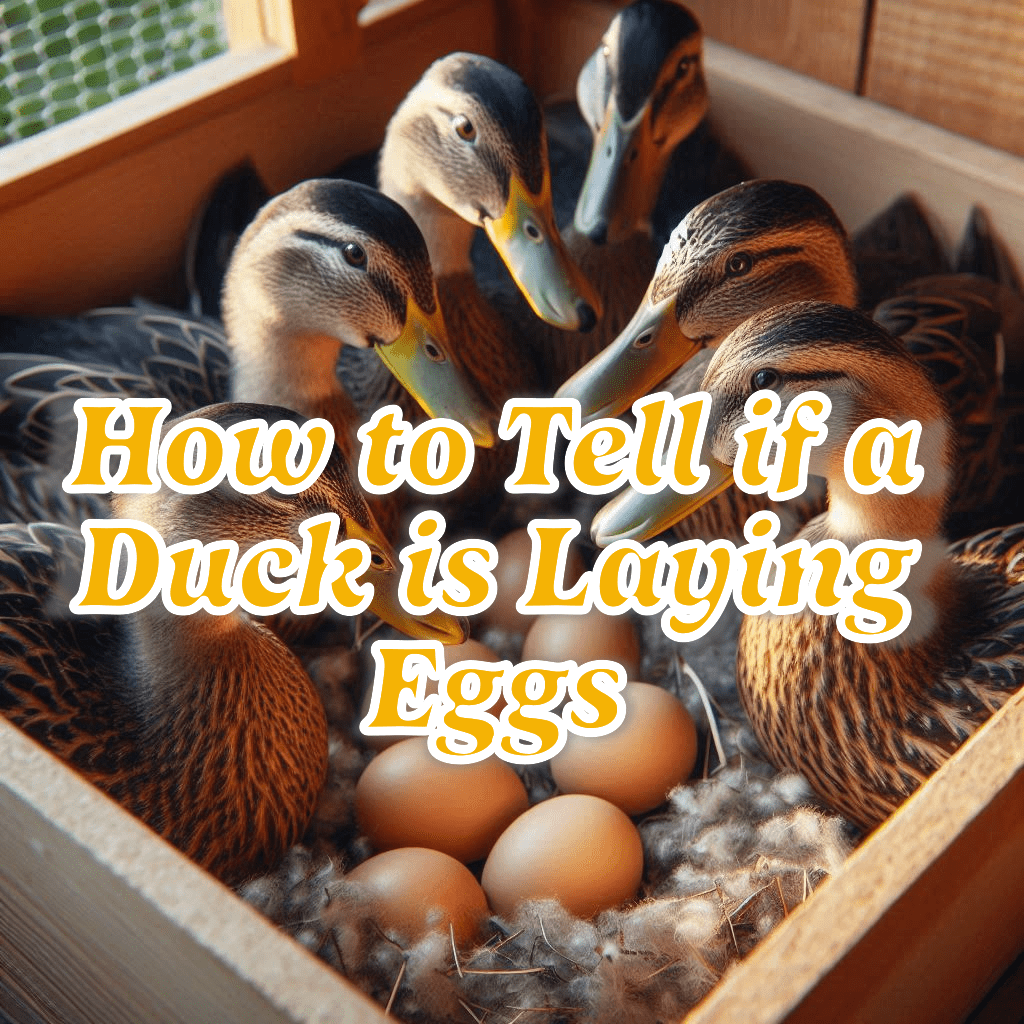How to Tell if a Duck is Laying Eggs: Signs and Tips
How to Tell if a Duck is Laying Eggs
For new duck owners, it can be exciting yet confusing to determine when their ducks are ready to lay eggs. Understanding the signs of laying is essential to ensure your ducks have the right environment and nutrition during this critical time. In this blog post, we’ll cover the signs that indicate a duck is laying eggs, how to identify when your ducks are ready, and some common behaviors associated with egg-laying.
When Do Ducks Start Laying Eggs?
Generally, ducks start laying eggs between 5 and 7 months of age, depending on the breed, diet, and overall health. However, some ducks may take a bit longer, especially if they are raised during shorter daylight hours or in colder weather.
Factors That Affect the Start of Laying:
- Breed: Breeds like Khaki Campbells and Indian Runners are known to begin laying as early as 5 months, while larger breeds like Pekins may take a bit longer.
- Light Exposure: Ducks need at least 14-16 hours of light daily to stimulate egg production. Shorter daylight in winter may delay laying.
- Diet and Nutrition: A balanced diet rich in calcium and protein is critical for healthy egg production.
| Duck Breed | Typical Age to Start Laying |
|---|---|
| Khaki Campbell | 5-6 months |
| Indian Runner | 5-6 months |
| Pekin | 6-7 months |
| Rouen | 6-7 months |
Signs Your Duck is Laying Eggs
Here are the common signs and behaviors that indicate your duck is laying or preparing to lay eggs:
1. Nesting Behavior
Ducks will begin to look for or create a suitable nesting spot before laying eggs. This could include gathering straw, leaves, or other bedding materials. You might notice your duck spending more time in a quiet, secluded area.
2. Increase in Vocalization
Ducks often become more vocal and exhibit a distinctive “quacking” pattern when they are about to lay. Some breeds have specific laying calls.
3. Abdominal Changes
You can gently feel your duck’s abdomen near the pelvic bones. If she is preparing to lay, her pelvic bones will spread apart slightly, allowing eggs to pass through.
4. Squatting Behavior
Squatting is a common behavior seen in laying ducks. They might squat more frequently when approached, which is a signal that they are ready for laying or have already started.
5. Frequent Visits to the Nest Box
If you provide nest boxes, ducks nearing laying age will begin to explore and spend time in them. You may see them sitting in the box more often, even if they haven’t laid an egg yet.
| Signs of Laying | Description |
|---|---|
| Nesting Behavior | Gathering materials and spending time in secluded areas |
| Increased Vocalization | More frequent and distinctive quacking |
| Abdominal Changes | Spread of pelvic bones, noticeable when gently touched |
| Squatting Behavior | Squatting more often when approached |
| Nest Box Activity | Frequent visits to the nesting area or box |

How to Encourage Egg Laying
If you’ve noticed these signs but haven’t seen any eggs yet, you can take steps to encourage egg laying:
- Ensure Proper Lighting: Make sure your ducks receive at least 14 hours of light daily, especially during shorter days.
- Provide a Balanced Diet: Offer a high-quality layer feed with the right balance of protein (16-18%) and calcium for strong eggshells.
- Set Up Comfortable Nesting Areas: Provide quiet and secure spaces with soft bedding where ducks can comfortably lay.
Common Egg-Laying Challenges
Even with the signs in place, some ducks may face challenges that delay or prevent egg-laying:
- Nutritional Deficiencies: A lack of calcium or protein can lead to poor egg production. Make sure your ducks have access to calcium supplements like oyster shells.
- Stress: Predators, new environments, or changes in routine can cause stress that affects egg-laying.
- Health Issues: If your duck shows signs of lethargy, abnormal droppings, or any distress, consult a veterinarian.
Conclusion
Recognizing when your duck is about to lay eggs involves observing behavioral changes and understanding the factors that influence egg production. By providing a suitable environment and monitoring for the key signs mentioned above, you can support your ducks through this exciting phase and enjoy fresh eggs from your flock.
For more details on duck care and egg-laying, check out this informative Wikipedia article on domestic ducks.
Quick Reference Table for Duck Laying Signs
| Sign | Explanation |
|---|---|
| Nesting Behavior | Ducks creating nests or gathering materials |
| Increased Vocalization | More frequent quacking, sometimes a laying call |
| Pelvic Changes | Slightly spread pelvic bones indicating readiness |
| Squatting | Frequent squatting when approached |
| Nest Box Activity | Increased visits and time spent in nest boxes |
